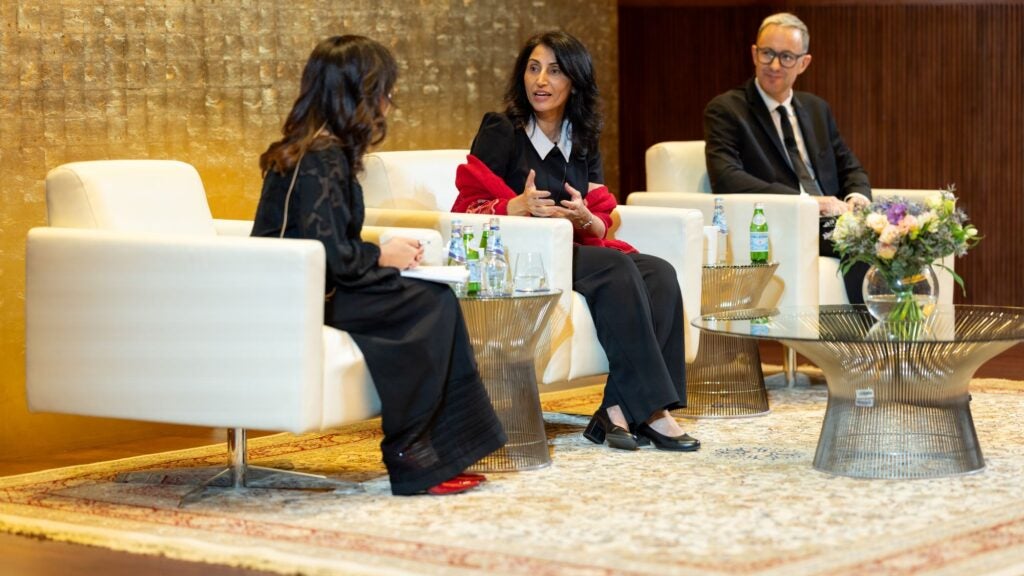Things We Learned from Asking “Is International Law Dead?”

Could international law still be humanity’s best hope for justice—or has it already failed? At Georgetown University in Qatar, students, faculty, and guests packed the auditorium for “Is International Law Dead?”, a thought-provoking panel moderated by Assistant Professor of International Law Noha Aboueldahab with Ralph Wilde, a professor of University College London and GU-Q Visiting Fellow; and Diana Buttu, lawyer, peace negotiator, and GU-Q Practitioner-in-Residence.
Here are four key takeaways about international law today:
International law still means something.
“For all its failures and its retreat behind ‘enforcement’ excuses,” said Dean Safwan Masri, “international law remains humanity’s stubborn hope that might should not make right.” Despite widespread skepticism, the panelists agreed that the law still has meaning, whether it is a way to “virtue signal,” according to Wilde, or as Buttu pointed out, to “make the world smaller” for war criminals through international travel bans.
The problem isn’t law, it’s power inequality.
“The global legal system often reflects and reinforces inequalities rather than restraining them,” said Wilde. The real challenge is in confronting “unequal power in the material world.” Wilde traced today’s legal frameworks to colonial “trusteeship,” a system built on “a racialized idea that some people in the world were the adults, and others were the children.” The system has since moved away from that and has introduced self-determination. “Self-determination is a pre-emptory norm of international law; settlements and deals have to be legally compliant with these norms,” he explained.
Palestine exposes the system’s moral contradictions.
“International law has been flipped on its head,” said Buttu when asked about mediation and legal remedies for Palestine. “I have never seen a situation where a people who are undergoing genocide have to negotiate an end to their genocide.” She warned that proposed peace plans deny Palestinians the right to self-determination while guaranteeing protection only for Israel.
Real change requires both law and people power.
While Buttu acknowledged law’s limits, she maintained that “there is some validity to this notion of law and the weight of law, even Israel uses it to invoke its right to self-defense.”
Wilde underscored that while law remains an important place to articulate ideals, they are not the real battleground. “The case for the global acceptance, implementation and enforcement of moral and ethical imperatives…ultimately need to be made in the realm of politics and power, and through direct action in the material world,” said Wilde. He called on states to meet their “positive duty” to act through sanctions, while Buttu left the audience with a note of hope: “International law is not the only tool… people are moving, and this is where I am hoping to see a lot more movement.”